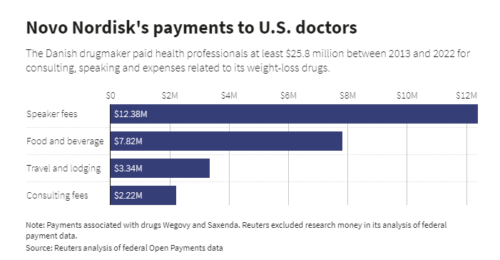Industry-funded studies of the week: meat
Every now and then, someone sends me something about industry-funded research that does my work for me. Here is an example.
I received this e-mailed message from John Andrews (reproduced with permission).
I’m sure others will have shared this with you, but as someone primed by reading your work to dig into authors’ backgrounds, I couldn’t help but notice some aspects of a new special issue of Animal Frontiers on ‘The Societal Role of Meat’ (link) that you might be interested to see. There are 36 authors across the special issue, but to highlight just a handful:
- Peer Ederer, guest editor and co-author of the introduction article, has his affiliation listed as ‘GOALScience at Global Food And Agriculture Network’ in Switzerland. However, the website of GOALScience describes themselves as an initiative of the ‘Global Food and Agribusiness Network’ (my italics), and describes itself as a commercial entity that operates as a “service to the global livestock stakeholder community” (link). The paper Ederer et al in the special issue (link) has a conflict of interest statement: “None declared.”
- Thompson et al (link) lists among its authors Jason Rowntree. Rowntree is described in his biography as having worked with the Savory Institute to develop its ‘Ecological Outcome Verification’ scheme for livestock farming. Rowntree’s biography on his university page describes him as an ‘advisor and educator’ to the Savory Institute. Savory’s website indicates that Rowntree’s university is what’s called a ‘Savory Hub’, and that Rowntree has at some point been ‘Hub leader’ (link). Rowntree is also co-lead on a $19mn research project in which Savory is a partner (link). The conflicts of interest statement for the article: “None declared”.
- Rod Polkinghorne, co-author of the perspective article (link), describes himself on his LinkedIn as “actively involved with the beef industry”. In fairness, his biography in the special issue does not disguise this, and the perspective article does not contain a conflict of interest statement of any kind.
I don’t want to suggest that this is particularly surprising in a journal that has a longstanding partnership with the American Meat Science Association, which partnership is not at all hidden (e.g. the journal’s ‘about’ page and Dilger, 2020). But the special issue is noteworthy as the claimed evidence base to support the ‘Dublin Declaration’ on the ‘societal role of livestock’, reported in the press in classic fashion (a Daily Telegraph headline in the UK reads ‘Meat is crucial for human health, scientists warn’), and actively being used as part of the current lobbying battles around EU environmental legislation (see e.g. here).
Perhaps I just don’t understand the subtleties of the term ‘conflict of interest’ well enough…
Comment: Thanks for all this. Yes, industry connections like these pose conflicts. These authors—and the journal in which they publish—have financial ties to an industry with an economic stake in the results of studies and the opinions of authors.
Indeed, these particular conflicts of interest are so evident that The Guardian did an article about them: Revealed: The livestock consultants behind the Dublin Declaration of Scientists.
While I’m at it, let me toss in one more as an example of how meat industry funding works.
The study: Higher muscle protein synthesis rates following ingestion of an omnivorous meal compared with an isocaloric and isonitrogenous vegan meal in healthy, older adults (thanks to Charles Platkin for sending this one).
Conclusion: “Ingestion of a whole-food omnivorous meal containing beef results in greater postprandial muscle protein synthesis rates when compared with the ingestion of an isonitrogenous whole-food vegan meal in healthy, older adults.”
Funding: “This study was funded in part by The Beef Checkoff, Denver, USA, and Vion Food Group, Boxtel, The Netherlands.”
When I see a title like this, I can guess who paid for the study. Not good.



